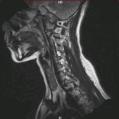What kinds of headaches are there?
More than 90 percent of headaches can be classified as tension-type, migraine or cervicogenic (headaches coming from pinched nerve endings in the neck)
By far, most people get tension-type headaches and get them frequently. They typically suffer mild to moderate pain, on both sides of the head, that is often described as tight, stiff, constricting – like having something wrapped around your head and pressing tightly.
Migraines are periodic severe, throbbing headaches that afflict far fewer people (and more women than men), usually hurt on one side of the head, can cause loss of appetite, nausea and even vomiting, and may involve a visual change called an aura. Cervicogenic headache is a muskuloskeletal form of tension-type headache (which may also be related to migraines). Many times, cervicogenic headache goes undiagnosed as such due to the relative newness of this classification.
Who suffers from headaches?
Many millions of adults, worldwide, get headaches regularly. Headaches are among the most common physical complaints prompting people to treat themselves or get professional assistance. One estimate holds that some 50 million people in the U.S. get severe, long-lasting, recurring headaches. Most headaches are not signs of serious underlying conditions, but they can be very distracting, debilitating and account for significant amounts of time lost from work.
What should I be concerned about?
If you are a headache sufferer, your obvious concern is to obtain safe, dependable relief. You should avoid making things worse by using drugs – even over-the-counter, nonprescription drugs – that can have serious side effects and dangerous interactions with other medications or supplements you take. You should also be aware that many people experience what are termed "analgesic rebound headaches" from taking painkillers every day, or nearly every day. Watch out! The medicine you take to get rid of today's headache may give you a headache tomorrow and the days after.
What can be done?
Research has shown treatments focused on neck muscles, ligaments and joints have had considerable success relieving the cause of headache pain and releasing headache sufferers from the dangerous vicious circle of taking ever-larger doses of ever-stronger painkillers that may even be causing new and worse headaches. Treating the neck structures has shown to be as effective and even more effective than medications in reducing the severity and frequency of headaches.
This information has been brought to you by……..
Accident & Injury Clinic
Specializing in treating headaches
In Vancouver WA 360-567-1739
Dr. Wade Burbank, Chiropractor
6403 NE 117th Ave #108
Free consultations are offered to headache
sufferers…..Call Now (360) 567-1739 for your
free consultation and examination to see if the Accident &
Injury Clinic can help free you of your headache pain.


